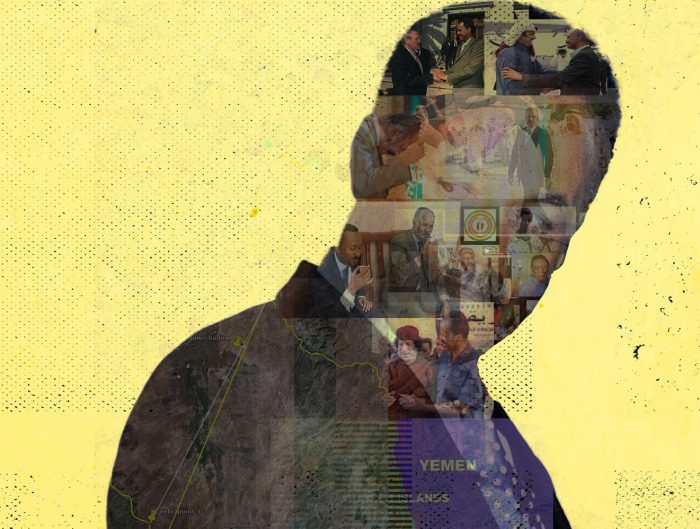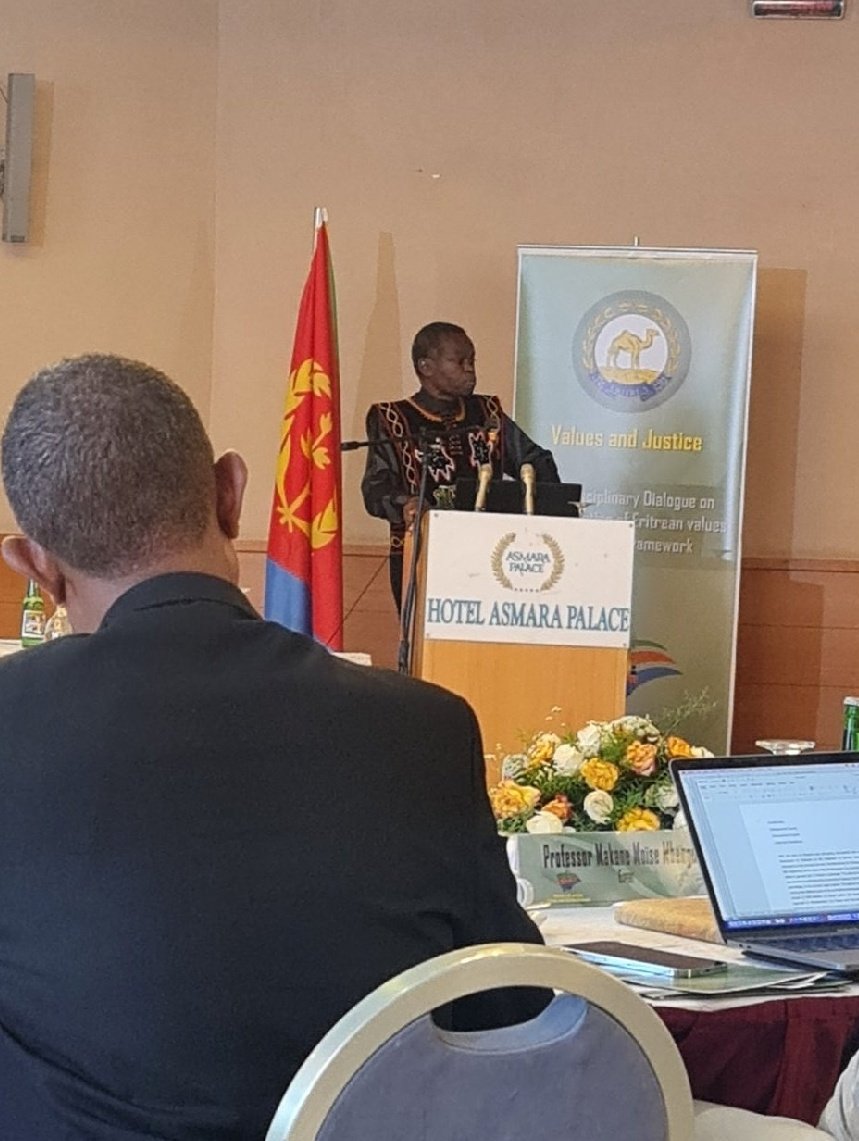Copied: Wide-eyed part-time YPFDJ cadres, misty-eyed perfervid patriots, new atheists who speak in feverish secular fundamentalist tongues, epigones of modernity, Western ‘experts’ who are so incurably orientalist that they think we should squat in the waiting room of history until such time that we mature enough to deserve civil and political rights, & co.
Subject: What the Eritrean State law says about a non-government/private school offering non-credit religious education on top of government-approved curriculum.
Law/Proclamation referenced: Proclamation 1/1991 pertaining to the establishment and conduct of non-government schools authored by Department of Education of the Provisional Government of Eritrea.
In the letter the Eritrean Ministry of Foreign Affairs wrote to the UN Special Rapporteur on Freedom of Religion or Belief, it references Proclamation 73/1995, which “clarifies and regulates religions and religious institutions”, to underline how clearly the Eritrean law delineates the boundary between the state and religious institutions. It goes on to state how Eritrea’s education policy “reflects” this law by “limiting religious institutions to providing religious education”, and non-religious schools – public and private – to “providing education in secular fashion as required by the guidelines of the Ministry of education.” It emphatically states that religious teachings and religious attires “are not permitted in secular schools.” It then charges the Al Diaa school principal, the late Hajji Mussa, for breaking this law and threatening the harmony of the multi-confessional Eritrean society.
For now, we are going to skip the uncritical adoption of the Western dichotomy and opposition between modernity and tradition, secularism and religion, national unity and embodied enactment of religious tradition, implied in the response of the PFDJ government and its supporters of which the letter of the Ministry of foreign Affairs is one latest example. We are not also going to attend fully to the telling invocation at the end of the letter referencing to the resurgent harassment of Muslim communities in some Western countries as a tu quoque argument that seems to insinuate that the PFDJ should be measured against the low, veil-banning, Islam-bashing standard seen in countries like France. We should also leave for another time the examination of how the PFDJ, with all its pretensions to charting independent path away from prevailing Western paradigm is, in a deeper sense, treading the beaten statist and Fukuyamayist – to throw at it its favorite bogeyman – path that centers the state as the only sovereign actor in the inexorable progression towards secular modernity modelled around the Western archetype.
One can also read the following two brilliant vivisections of the PFDJ handing of the Al Diaa affair here and here.
The aim of this brief piece is to show what pertinent Eritrean laws say about non-government schools providing religious education. The most pertinent proclamation in this regard is Proclamation 1/1991 whose provisions are not subjected to any amendment to this day. For our purpose, the most relevant part of the proclamation is article 5 on curriculum non-government schools are obliged to follow. Here is a free-style translation of the article:
5.1 Non-government schools shall follow the curriculum as set by the department of education of the Eritrean government
5.2. Non-government schools shall conduct themselves in accordance to the guidelines established by the department of education.
5.3 Non-government schools shall use textbooks published by the department of education.
5.4. Any non-government school which desires to provide religious education can do so. [It should be mentioned here that in article 4 of the proclamation, it is stated that this law does not apply to schools which are exclusively dedicated to only religious education. So, when article 5.4 says that non-government schools can provide religious education if they so desire, it is referring to those schools which want to provide additional religious education to the secular curriculum their offer.] 5.5. The form and frequency of religious education provided by non-government schools shall be subject to discussion [with relevant authorities], and religious education shall not be counted towards the credit of students.
Here you have it fixed for you folks. The PFDJ might try its best to pull a legal wool over our eyes. And its gullible supporters, who, as good cadres are supposed to do, should have schooled themselves, at least, in the foundational laws and political principles of the organization they purport to be members of, would be deceived anyway.





10 Comments
Brilliant as usual, Samuel! For those who are too busy to read the long form, the short form is “5.4. Any non-government school which desires to provide religious education can do so.” This is what the late Musa Mohammed nur was doing when he was challenging them to cite specific laws he was violating but of course they couldn’t.
Thank you, Saay. If only the PFDJ had bona fide members whose term of reference was the foundational legal, political and policy documents of their organisation. The nature of our debate would have been a bit different.
Thank you, Saay. It is not that the PFDJ cares about its own legal regime – if that were the case, we would have a totally different debate- but may, be may be, the hope is that some bona fide PFDJ loyalists might begin to make an effort to learn to refer to organizational or national legal and political documents, in good faith that is, instead of predicting their positions on empty sentiments signifying nothing.
Samule
Sami, two brief issues as its not that comfortable using my cellpad.
1) The MFA statement doesnt insunuate that Eri should be measured against the low bar of religious freedom in some Western countries. It was clearly pointing to the travesty of justice in singling out one country while blind folded for much bigger faultylines in others. It was demanding a fair treatment and against cherrypicking.
2 The proclamation you referred to was nullified by the declaration of establishment of the Eritrean Government in the post referendum (1993) period. All proclamations issued before 1993 were deemed null unless a new proclamation is promulgated subsequently.
With Selamta
Selam Awet,
1) Verily, pointing to unpunished or unattended transgression of others is not a valid cover against one’s transgressions. How else can you read this whataboutery other than as a plea to be weighed by the same scale other transgressors are presumably weighed?
2) What is the basis of your second assertion? For example, the transitional civil code enacted by Proclamation 2/1991 after some amendments, replacements and deletions to the Ethiopian civil code has been in force until it was replaced by the new civil code issued in 2015.
Brilliant as usual, Samuel! For those who are too busy to read the long form, the short form is “5.4. Any non-government school which desires to provide religious education can do so.” This is what the late Musa Mohammed nur was doing when he was challenging them to cite specific laws he was violating but of course they couldn’t.
Thank you, Saay. It is not that the PFDJ cares about its own legal regime – if that were the case, we would have a totally different debate- but may, be may be, the hope is that some bona fide PFDJ loyalists might begin to make an effort to learn to refer to organizational or national legal and political documents, in good faith that is, instead of predicting their positions on empty sentiments signifying nothing.
Samule
Sami, two brief issues as its not that comfortable using my cellpad.
1) The MFA statement doesnt insunuate that Eri should be measured against the low bar of religious freedom in some Western countries. It was clearly pointing to the travesty of justice in singling out one country while blind folded for much bigger faultylines in others. It was demanding a fair treatment and against cherrypicking.
2 The proclamation you referred to was nullified by the declaration of establishment of the Eritrean Government in the post referendum (1993) period. All proclamations issued before 1993 were deemed null unless a new proclamation is promulgated subsequently.
With Selamta
Selam Awet,
1) Verily, pointing to unpunished or unattended transgression of others is not a valid cover against one’s transgressions. How else can you read this whataboutery other than as a plea to be weighed by the same scale other transgressors are presumably weighed?
2) What is the basis of your second assertion? For example, the transitional civil code enacted by Proclamation 2/1991 after some amendments, replacements and deletions to the Ethiopian civil code has been in force until it was replaced by the new civil code issued in 2015.
Thank you, Saay. If only the PFDJ had bona fide members whose term of reference was the foundational legal, political and policy documents of their organisation. The nature of our debate would have been a bit different.